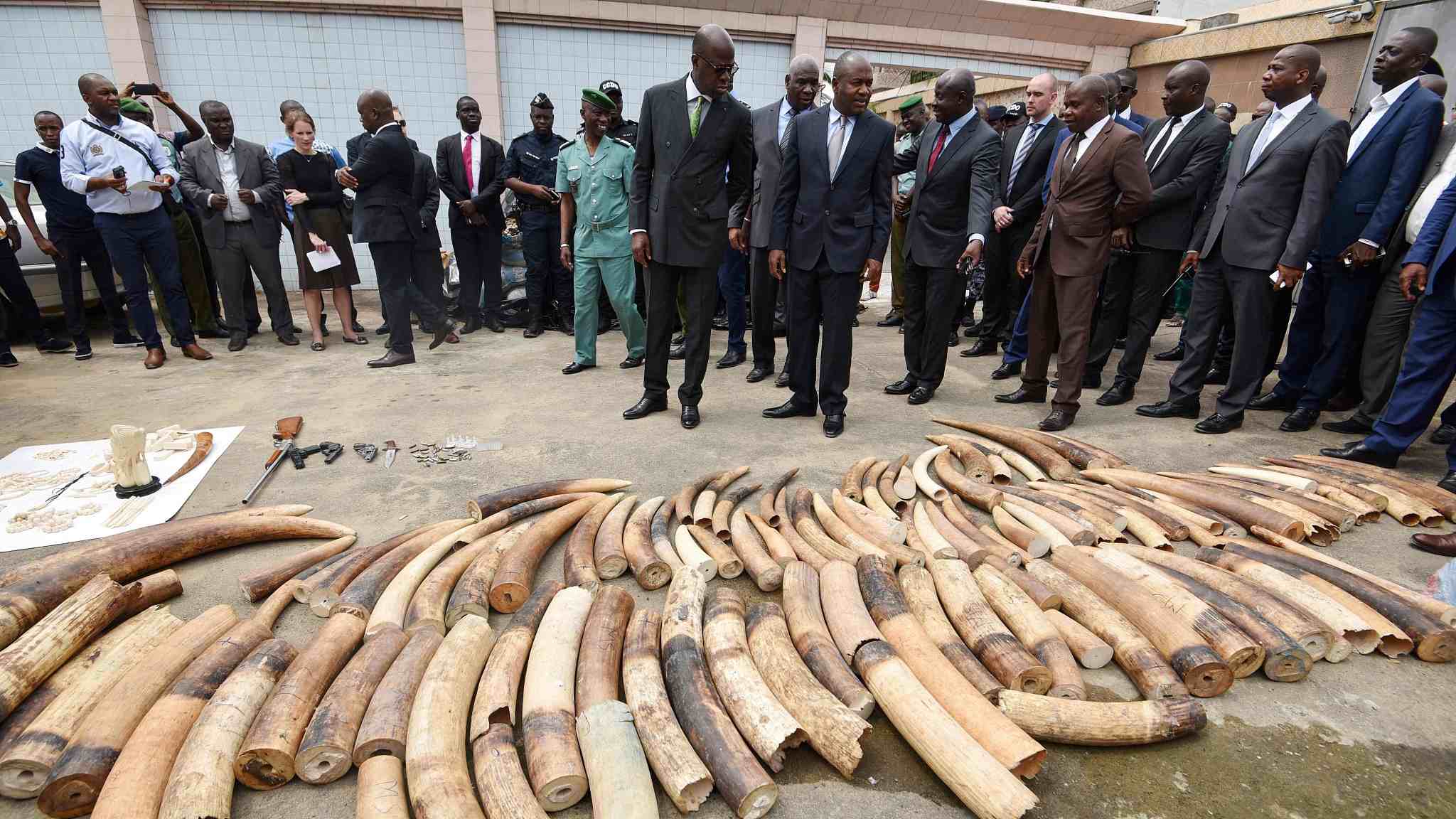
[ad_1]
The massive poaching of elephants continues at an alarming rate in Africa, despite the large number of countries that have closed their national ivory market, a report released on Friday said.
The brutal slaughter rate remained unchanged the year before, threatening the long-term survival of elephants in the region, showed data collected by the Convention on International Trade in Wild Fauna and Flora threatened with extinction (CITES), revealed.
The rate is measured by what the organization calls the proportion of illegally killed elephants (PIKE), which is the number of elephants slaughtered illegally divided by the total number of elephant carcasses detected .
In 2011, PIKE peaked at 0.77 due to large-scale poaching, which eliminated 10% of African elephants. The killings have steadily decreased, with PIKE falling to 0.53 in 2017.
PIKE levels above 0.5 indicate that elephant deaths are due to illegal killing rather than to other causes, such as drought or natural deaths.
The number of poached elephants was particularly high in Central Africa. More than 20 carcasses were found in Nouabalé-Ndoki National Park and 12 in Virunga National Park in the Democratic Republic of Congo.
In Minkébé National Park, Gabon, 16 carcasses were detected.
In East Africa, PIKE's estimates increased from 0.23 in 2017 to 0.32 in 2018. But West Africa declined from 0.75 in 2017 to 0.46 in 2018 .
CITES is concerned that the magnitude of elephant mortality, which exceeds natural birth rates, may result in ecological imbalance in the region.
Many African elephant populations are small, fragmented and poorly protected, making them even more vulnerable to poaching, he added.
"We must continue to reduce poaching and the illegal ivory trade and to find solutions to ensure the coexistence of elephants with local people," said CITES Secretary-General Ivonne Higuero.
Necessity of a global consensus to ban the trade in ivory
In recent years, the United Kingdom, the United States, China and its parts of Hong Kong and Taiwan, all of which were considered to be leading ivory markets, have banned the sale of 39 ivory in the domestic market to save African elephants.
Efforts are underway in Australia, Singapore and the EU to enforce a similar ban. Last month, Japan announced that it would set up a carbon dating to control illegal ivory sales.
CITES banned international trade in ivory in 1990, but left the decision to national governments to close their domestic trade.
Conservation and wildlife groups have called for a global consensus on the closure of national ivory markets.
Although poaching for ivory has declined considerably since its heyday in 2011, it still represents a significant threat to many African elephant populations, CGTN said Peter Knights, CEO of WildAid.
"Japan and the EU must join the international community to ban the sale of ivory," he said.
Imperturbable
In recent months, Botswana, which has the largest number of elephants in the world, is trying to revive the ivory trade.
On Tuesday, he held a high-level meeting with Zimbabwe, Zambia and Namibia and Angola to resume ivory sales as a measure of elephant management.
Over the past two decades, Botswana's elephant population has increased from 55,000 in 1991 to 160,000, resulting in problems including elephant consumption of farmers' crops and the destruction of their crops. houses.
The government believes that ivory sales would help compensate farmers facing the consequences of the human-elephant conflict.
But African elephant populations have globally dropped from an estimated 12 million a century ago to around 400,000, the report said on the state of the elephants of Africa. 39, Africa published in 2016.
Higuero urged the international community to further expand its work with African range states to find solutions that work for both elephants and local communities.
(Image at the top: Alain-Richard Donwahi, Ivorian Minister for Water and Forests, together with other Ivorian authorities, examines the elephant ivory seized at the headquarters of the anti-corruption unit in Côte d'Ivoire transnational organized crime of the country in Abidjan on 25 January 2018. / VCG Photo)
Source link